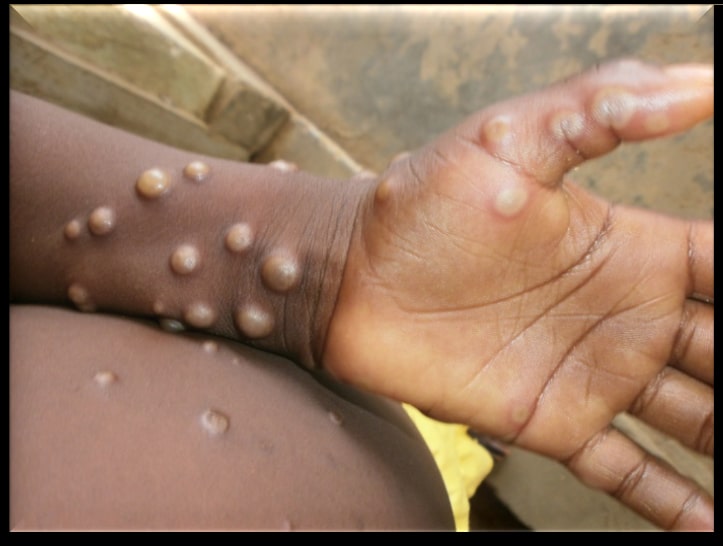Mpox: Droplets a ‘minor’ route of transmission, says WHO

The monkeypox virus is an orthopoxvirus that causes mpox (monkeypox), a disease with symptoms similar to smallpox, although less severe. While smallpox was eradicated in 1980, mpox continues to occur in countries of central and west Africa. | World Health Organization (WHO)
GENEVA, Switzerland — The WHO on Tuesday said droplets were a minor route of transmission for mpox compared to physical contact, adding that more research was needed to understand how the outbreak is spreading.
The World Health Organization declared an international emergency over mpox on August 14, concerned by the surge in cases of the Clade 1b strain in the Democratic Republic of Congo and its spread to nearby countries.
READ MORE:
Health officials monitor suspected mpox case in N. Samar
Cebu City prepares for potential mpox cases
DOH records 2 new cases of mpox
“Close contact includes skin-to-skin (such as touching or sex) and mouth-to-mouth, or mouth-to-skin contact (such as kissing),” it says.
It can also include “being face-to-face with someone who has mpox (such as talking or breathing close to one another, which can generate infectious respiratory particles)”.
WHO spokeswoman Margaret Harris said Tuesday that if a person with the virus had lesions, “if you’re talking closely to someone, breathing on them, physically close, face-to-face, there is a possibility” of viral spread, “but this is a minor source”.
Instead, “what we’re seeing is the close, physical skin-to-skin” contact as the chief route of transmission, she told a briefing in Geneva.
“When you’re talking to somebody, you’re spitting out droplets,” but “it’s not a very major form of transmission — and it’s not a… through-the-air, long-distance sort of transmission”.
“More research is needed to fully understand the transmission dynamics,” Harris added.
The WHO recommends the use of facemasks for those with mpox, their close contacts and health workers treating them.
Studies into new strain
There are two subtypes of mpox: Clade 1, endemic in the Congo Basin in central Africa; and Clade 2, endemic in West Africa.
The surge in the DR Congo is being driven by surges of two different Clade 1 strains.
The first is an outbreak in northwest DRC of what was previously known as Clade 1, now called Clade 1a.
The second, in northeastern DRC, is a new offshoot of Clade 1 called Clade 1b, which was first detected in September last year and is spreading rapidly.
The spread of Clade 1b, and its detection in nearby countries, were the main reasons behind the WHO sounding its top emergency alarm.
Clade 1 mpox is known to be more virulent than Clade 2 mpox and has a higher fatality rate.
As for whether Clade 1b is more dangerous than Clade 1a, Harris said: “We don’t have that data.”
“Studies are under way to understand the properties of the new strain. But available epidemiological data doesn’t really suggest that the clade 1b variant causes more severe cases and deaths.”
The WHO said Tuesday that it needed $87.4 million from September to February to implement its plans to contain the mpox outbreak.
Meanwhile the UN refugee agency warned that displacement camps in the DRC and other impacted countries in Africa could be severely affected.
“Without additional, urgent support, the recently declared mpox outbreak could become devastating for refugees and displaced communities,” said UNHCR’s public health chief Allen Maina.
He said implementing mpox prevention measures among those fleeing violence was a “tremendous challenge”, with people driven into overcrowded shelters with poor sanitation, while others were cut off from humanitarian assistance.
Disclaimer: The comments uploaded on this site do not necessarily represent or reflect the views of management and owner of Cebudailynews. We reserve the right to exclude comments that we deem to be inconsistent with our editorial standards.
